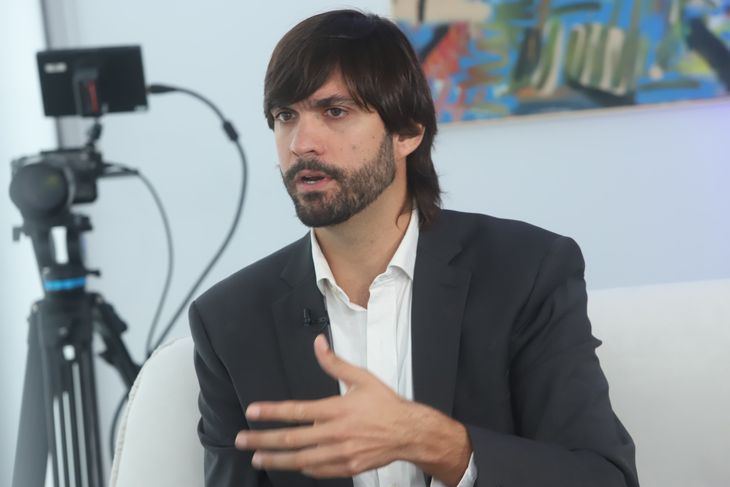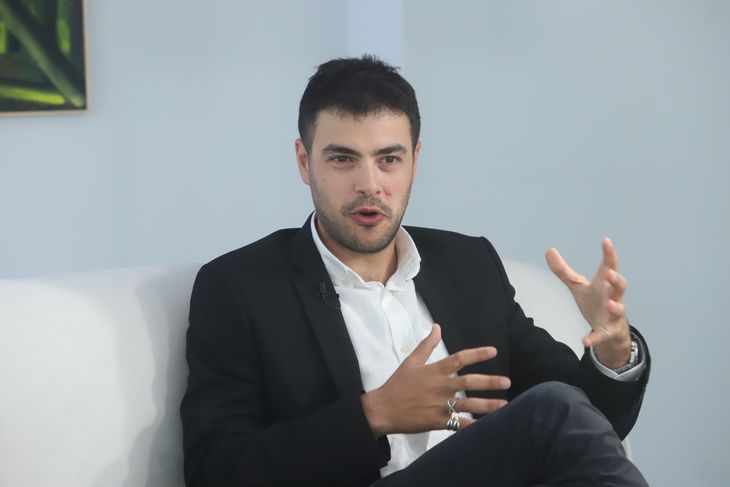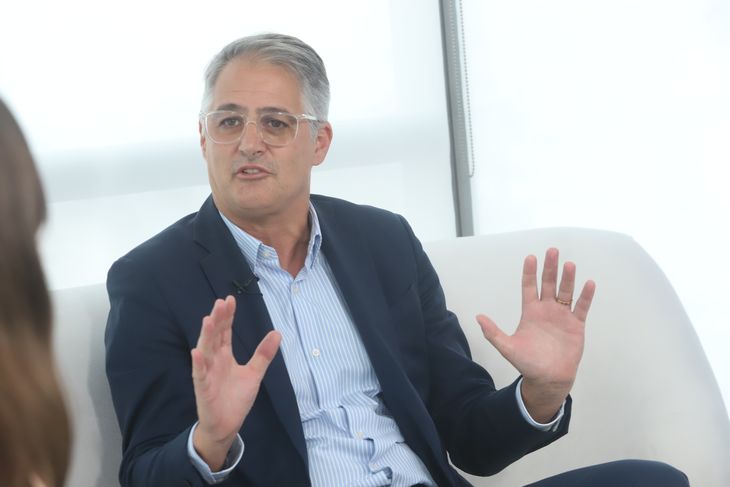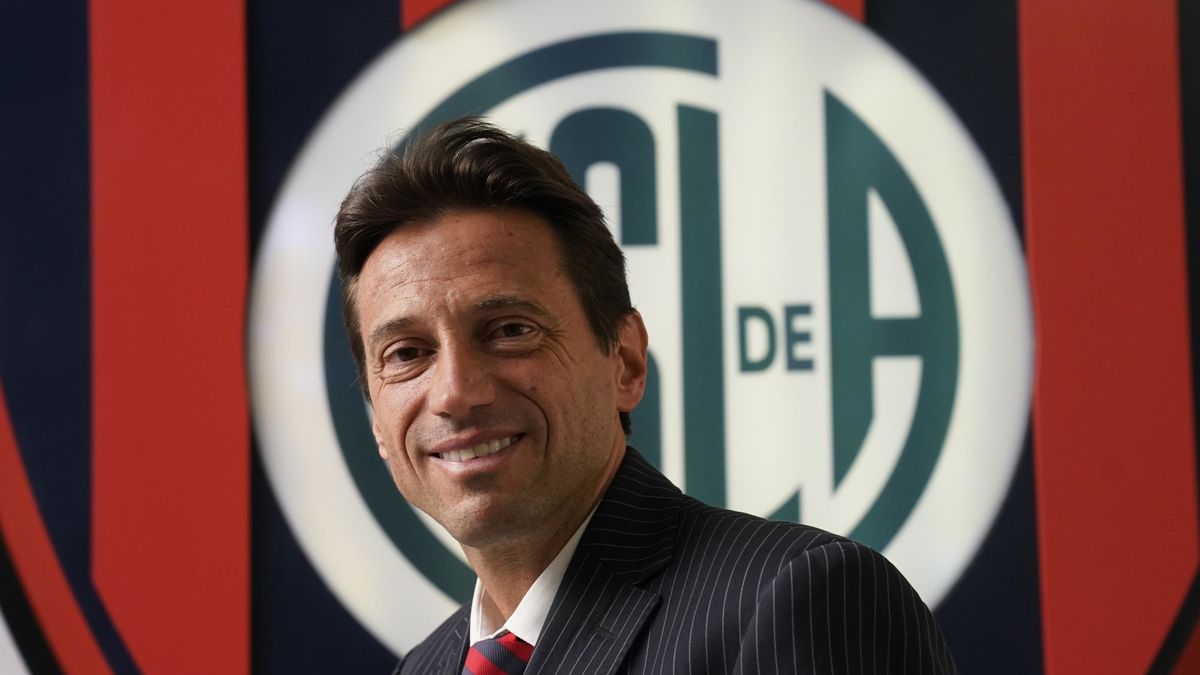The talk, moderated by the editor-in-chief of the Buenos Aires Herald, Estefanía Pozzo, It started around the role of CEOs. “In Argentina you have to be with your antennas tuned and be a dynamic person that can adapt to changes constantly without losing focus on the plan you draw up,” García began his speech.
“Our industry is one of flexible plans, but with a clear horizon. Surely along the way we will encounter a lot of obstacles, but if we are clear about where we want to go, it will be a matter of being extremely creative and innovative and relying on absolutely all the instruments we have at hand to be able to achieve our business plans,” he highlighted.
To that he added “one of the strengths that we Argentines have, which is the privilege of having enormous talent, so as CEOs we have to put it behind an idea of added value and express it to the market in the best way.” Personally, he maintained that by working with cruise companies “we provide services to shipping companies that order ships to be built, they have more and more beds to fill and we have to meet the quota and they don’t care if Argentina is doing well or not. It’s wrong.”
Szuldman reinforced the concept that “you always have to be very attentive, no matter if it is Argentina or another place,” because CEO is a “complicated” role.
“I am more used to it in Argentina and now in Uruguay with new openings and I see that perhaps things are not so complex. “We have to be accustomed to this dynamism and adapt to these changes all the time,” he valued.
Diego García.jpeg
Diego García, executive director of CVC Corp Argentina.
The Argentine reality and future projections
Thinking about current Argentina, García highlighted that CVC Corp is “a Brazilian group listed on Bovespa, with investors behind you who demand a plan and rigorous monitoring, with an audit plan”, something that he compared to “the informality” that exists in Argentina.
“In the last Idea colloquium, a minister (Frederick Sturzenegger) He said not to ask him to lower taxes, but to reduce expenses. In another panel, the CEO told him not to go down, but to make everyone pay taxes. They don’t understand that informality outside and you lose competitiveness,” he questioned.
In the future, he noted: “We trust that Argentina, which is coming from many years of no growth. start to have some green shoots, depending on the sector and industry. Production is the only way out, but in a common framework to get out of that informality.”
Salgueiro.jpeg

Joaquín Salgueiro, CEO of Organfur.
In the same tone, Salgueiro raised “build a robust value-added idea and go out to express it and export it to other markets, be it a product or a service, with the pillar as talent.”
Regarding the difficulties in drawing up a plan, he explained: “In my case the goals are not flexible, I have to fulfill contracts because if not the ship leaves empty. So we have to be more creative.”
Highlighting the sector’s figures, he indicated: “This year we had a drop of about 3.5% in GDP and very high inflation. However, We grew 47% in billing in dollars and 30% in passengers. It was a year that had a particular complexity, but we had other advantages.”
Talent acquisition
Regarding talent acquisition, García indicated that both in Almundo, as in Byblos and Ola, “You always look for someone who complements you on the team” and defined: “We are looking for people who can provide solutions to the company, who have high performance with capacity and putting their feet in the mud with the teams.”
Salgueiro focused on “a work culture, highly respectful and results-oriented, which is central to achieving what we are supporting today as a company” and compared: “She can be the best salesperson or manager in the world, but if she is not polite and has no respect, I am not interested.”
Szuldman, in turn, highlighted that “AQA is the business unit of the company that is growing the most, highly recognized in hospitality and gastronomy” and highlighted that at this moment the firm is working on “professionalizing ourselves with the search for talent and decentralizing decision-making with managers, which helps a lot when projecting.”
In turn, he called to “be very attentive” to the people. “As we are a service company, our customers choose us every day. If we do not serve it well, the client will cancel,” he warned.
Luciano Szuldman, CEO of the PWG group; .jpeg

Luciano Szuldman, CEO of the PWG group.
Expectations for the season
Given the imminence of a new summer season, García stated that the projections are “positive”, but similar to the beginning of last year. “That time there was an advance in sales prior to the elections and they doubled between October and November, but they fell 70% once the government devalued. This year, the last quarter is going to be similar,” he observed.
Regarding the behavior of tourists, he considered that at this time “A middle class that was relegated last year is beginning to join, which is encouraged by the lack of quotas to take out savings and pay in MEP dollars for their trip to Brazil or the Caribbean.”
At the same time, he highlighted the growth of trips to United States and Europe. “Those who go to these destinations continue doing so and grew. There is even a change in tourist flows between corporate traffic, business traffic, cruise ships and families due to migratory flows,” he said about the rise of Europe.
In matters of cruises, Salgueiro assured that “the star destination is Brazil” and highlighted that “Going on a cruise to Miami is a much cheaper price/quality option than being in Miami.” “Cruises have grown in proportion to the number of seats. More people go and it takes more market share of trips abroad,” he highlighted.
Source: Ambito
I am an author and journalist who has worked in the entertainment industry for over a decade. I currently work as a news editor at a major news website, and my focus is on covering the latest trends in entertainment. I also write occasional pieces for other outlets, and have authored two books about the entertainment industry.




